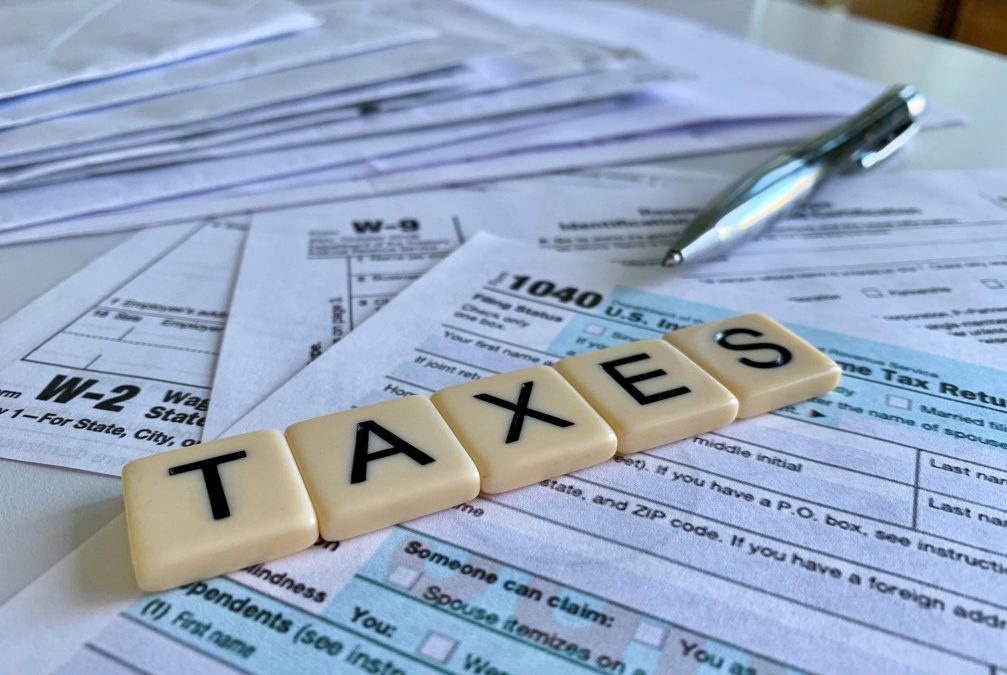Tax time is almost upon us. Adding the numerous tax responsibilities to your already full schedule managing a business might seem daunting. There’s a lot to keep track of, but starting early (i.e. now) and having a thorough checklist can help you keep everything on track. After one of the most difficult years for small businesses on record, it can also save you some much-needed income by giving you the time to find more deductions and avoid any penalties.
Know Your Taxes Forms and When They Are Due
Tax due dates for businesses depend on your business classification. While many of the smaller business classifications share the same April 15 date as individual tax returns, if you’ve chosen to set up your business as an S corporation or partnership, the deadline is earlier. The forms you have to fill out also vary based on your classification. Take note:
Due March 1:
- Tangible Personal Property Schedules due to the Jefferson County Clerk
Due March 15:
- S corporations, Form 1120-S
- Partnerships, Form 1065
- S Corporations, partnerships and multi-owner LLCs, Schedule K-1
- Most countys’
Due April 15:
- Sole proprietorships and single-member LLCs, Schedule C (return with your 1040)
- C-corporations, Form 1120
- All Tennessee state business taxes
There are also specific forms and tax-related tasks that are due earlier than April 15, including quarterly estimated taxes and excise taxes for businesses selling liquor, cigarettes, fuel, lottery tickets, etc.), sending W-2s and 1099 forms to employees and contractors and filing 1099s.
Get a Tax Extension if You Need It
If you just don’t think you can get everything in order on time: don’t fret. You can file for a federal extension and an extension for Tennessee tax, and it’s usually automatic. Extensions for small business set up as sole proprietors, single-member LLCs and C-Corporations usually last for six months through October 15. For Partnerships and S corporations, they last through September 15.
Just make sure that you file for an extension before your original due date. And note that it’s an extension for paperwork only. The IRS still expects you to pay your taxes on time.
Get on Your Tax Accountant’s Calendar
Tax preparers and CPAs get swamped with work from mid-January until April 15. So, if you think you’ll need help with your small business taxes, get on their schedule now. Dig into your taxes enough now to know your questions and pose them, or to feel confident you can do your taxes on your own. If you don’t already work with a tax preparer, as you’re researching you’ll find that many CPA firms specialize in particular small business fields that you might fall under.
The worst-case scenario is realizing on April 14 that you are way over your head with small business taxes. By that time, most good tax preparers are fully booked, and won’t have the resources to help you. You can always file an extension at that point, but better to save yourself the unnecessary stress now.
Send & Receive Your Information Returns
The most common information returns for small businesses are W-2s (for employees) and 1099s (for contractors). These are supposed to be sent by January 31, so if you’re just learning about the now, you might already behind on your small business tax obligations. Mark your calendar for the new year now to make sure you stay ahead of this obligation in future years.
Many sole proprietors or single-LLCs who contract out their work will have a small pile of 1099s from their clients by mid-February. Hold on to them to help with your business tax return.
Other types of common information returns small businesses need to report include:
- Interest income, Form 1099-INT
- Mortgage income, Form 1098
- Attorney payments, rent, prizes and awards, royalties, etc., Form 1099-MISC
For a full list, see the IRS’s Guide to Information Returns.
Organize Your Financial Records
There’s a lot of paperwork involved in filing your small business taxes. To make sure your tax accountant has all the information they need—or to keep you from having to stop and start a dozen times if you’re doing taxes on your own—it helps to gather all the necessary documents at the onset. A few of the most common documents small business owners need to file taxes are:
- Previous year’s tax return
- Incomes statement and balance sheet
- Payroll documents
- Accounting journals and ledgers
- Bank and credit card statements
- Interest or investment income statements
- Expenditure receipts, vehicle mileage logs and home-office information
Your business accounting software or bookkeeper should be able to provide most of this information. If you don’t have either, track how long it takes you to gather these documents and file your taxes, and multiply that cost by your hourly rate. You just might find you’d save money by employing these resources in the future.
If you make or sell merchandise as part of your small business, your inventory might also affect your business tax return. You need to gather information about your total inventory and its worth at the start of the year and end of the year, the inventory and materials you purchased, and any inventory removed without sale.
Verify your Business Expenses and Other Possible Deductions
Small business tax deductions, business expenses and tax credits can really make a difference to your tax return. First and foremost, gather all your general business expenses, including:
- Rent (or a portion of your mortgage and utilities if you work from home)
- Insurance
- Phone and internet
- Professional service fees for accountants, lawyers or marketing firms
- Advertising and marketing expenses
- Transportation (mileage)
- Health insurance and other insurance
- Employee salaries and benefits
- Meals and travel expenses
Some of this information will be a natural product of gathering your financial information, and to document some deductions all you’ll need are receipts. But be particularly careful differentiating between personal and business expenses when deducting business expenses.
You can also claim some small business tax credits with just a light amount of research. Some common business tax credits include:
- Employee Retention Credit—for retaining employees during the pandemic’s economic downturn
- Small Business Health Care Tax Credit—if your small business provides employee health coverage
- Employer Credit for Paid Family and Medical Leave—if you paid any employees while on family and medical leave
- Work Opportunity Credit—for small businesses that hire veterans, ex-felons and some other minority groups.
The IRS has a full list of business tax credits and information on them, and if you have the time to spend doing a little bit of research, you might a substantial portion of your taxes through them.
Make it Easier Next Year
How hard was it to gather all this information? Did you miss any deadlines or have to file an extension? We’ve offered several suggestions throughout this article to make your tax planning process easier, but identifying your small business’ key pain points during tax season is the biggest way to make filing easier next year.
Also, try to find the goldilocks point in your quarterly estimated taxes. If you got a huge refund from the IRS, that’s cashflow your small business likely could have put to use during the year. If you have a big tax bill that empties out your business savings now, you likely should have paid more throughout the year in your quarterly estimated taxes.
Join the Jefferson County Chamber of Commerce
Learning from and getting tax advice from other businesses who know the ins and outs of local taxes right here in Jefferson County can be a huge boon, saving you time and money. You might also discover some trusted local bookkeeping or accounting firms that can make your small business taxes much easier while supporting the local economy.
If you have a business in Jefferson County and successful business growth is your goal, we’re here to help. Don’t waste time searching the internet for “networking events near me”. Become a member of the Jefferson County Chamber of Commerce today to start taking advantage of all the benefits we have to offer. To find out more about how to join or to learn about how we can be a difference-maker for your small business, contact us online or by calling 865-397-9642.

